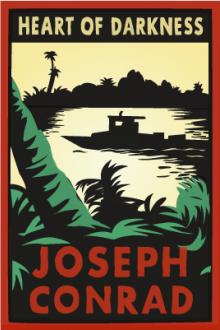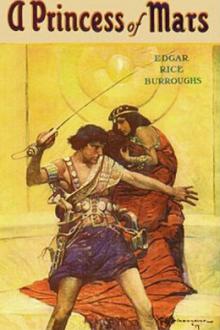Genre Adventure. Page - 28

this nervous little chap.
There was a tray of drinks on a table beside him, from which he filled himself a stiff whisky-and-soda. He drank it off in three gulps, and cracked the glass as he set it down.
'Pardon,' he said, 'I'm a bit rattled tonight. You see, I happen at this moment to be dead.'
I sat down in an armchair and lit my pipe.
'What does it feel like?' I asked. I was pretty certain that I had to deal with a madman.
A smile flickered over his drawn face. 'I'm not mad - yet. Say, Sir, I've been watching you, and I reckon you're a cool customer. I reckon, too, you're an honest man, and not afraid of playing a bold hand. I'm going to confide in you. I need help worse than any man ever needed it, and I want to know if I can count you in.'
'Get on with your yarn,' I said, 'and I'll tell you.'
He seemed to brace himself for a great effort, and then started on the queerest rigmarole. I didn't get hold of it at first, and I had to stop and ask him questions. But here is the gis

That night, when supper was finished and they sat on the oblong box and pulled at their pipes, the circle of gleaming eyes drew in even closer than before.
"I wisht they'd spring up a bunch of moose or something, an' go away an' leave us alone," Bill said.
Henry grunted with an intonation that was not all sympathy, and for a quarter of an hour they sat on in silence, Henry staring at the fire, and Bill at the circle of eyes that burned in the darkness just beyond the firelight.
"I wisht we was pullin' into McGurry right now," he began again.
"Shut up your wishin' and your croakin'," Henry burst out angrily. "Your stomach's sour. That's what's ailin' you. Swallow a spoonful of sody, an' you'll sweeten up wonderful an' be more pleasant company."
In the morning Henry was aroused by fervid blasphemy that proceeded from the mouth of Bill. Henry propped himself up on an elbow and looked to see his comrade standing among the dogs beside the replenished fire, his a

evil give to him with his own hands, and told him he could cure anybody with it and fetch witches whenever he wanted to just by saying something to it; but he never told what it was he said to it. Niggers would come from all around there and give Jim anything they had, just for a sight of that five-center piece; but they wouldn't touch it, because the devil had had his hands on it. Jim was most ruined for a servant, because he got stuck up on account of having seen the devil and been rode by witches.
Well, when Tom and me got to the edge of the hilltop we looked away down into the village and could see three or four lights twinkling, where there was sick folks, maybe; and the stars over us was sparkling ever so fine; and down by the village was the river, a whole mile broad, and awful still and grand. We went down the hill and found Joe Harper and Ben Rogers, and two or three more of the boys, hid in the old tanyard. So we unhitched a skiff and pulled down the river two mile and a half, to the big scar

sons who appeared to listen to him with respect. d'Artagnan fancied quite naturally, according to his custom, that he must be the object of their conversation, and listened. This time d'Artagnan was only in part mistaken; he himself was not in question, but his horse was. The gentleman appeared to be enumerating all his qualities to his auditors; and, as I have said, the auditors seeming to have great deference for the narrator, they every moment burst into fits of laughter. Now, as a half-smile was sufficient to awaken the irascibility of the young man, the effect produced upon him by this vociferous mirth may be easily imagined.
Nevertheless, d'Artagnan was desirous of examining the appearance of this impertinent personage who ridiculed him. He fixed his haughty eye upon the stranger, and perceived a man of from forty to forty-five years of age, with black and piercing eyes, pale complexion, a strongly marked nose, and a black and well-shaped mustache. He was dressed in a doublet and hose of a violet

pree on shore suffices to unfold for himthe secret of a whole continent, and generally he finds the secretnot worth knowing. The yarns of seamen have a direct simplicity,the whole meaning of which lies within the shell of a cracked nut.But Marlow was not typical (if his propensity to spin yarns beexcepted), and to him the meaning of an episode was not insidelike a kernel but outside, enveloping the tale which brought itout only as a glow brings out a haze, in the likeness of one ofthese misty halos that sometimes are made visible by the spectralillumination of moonshine.
His remark did not seem at all surprising. It was just like Marlow. It wasaccepted in silence. No one took the trouble to grunt even; and presentlyhe said, very slow--
"I was thinking of very old times, when the Romans first came here,nineteen hundred years ago--the other day. . . . Light cameout of this river since--you say Knights? Yes; but it is like arunning blaze on a plain, like a flash of lightning in the clou

I cannot tell; but conclude theywere all lost. For my own part, I swam as fortune directed me, andwas pushed forward by wind and tide. I often let my legs drop, andcould feel no bottom; but when I was almost gone, and able tostruggle no longer, I found myself within my depth; and by thistime the storm was much abated. The declivity was so small, that Iwalked near a mile before I got to the shore, which I conjecturedwas about eight o'clock in the evening. I then advanced forwardnear half a mile, but could not discover any sign of houses orinhabitants; at least I was in so weak a condition, that I did notobserve them. I was extremely tired, and with that, and the heatof the weather, and about half a pint of brandy that I drank as Ileft the ship, I found myself much inclined to sleep. I lay downon the grass, which was very short and soft, where I slept sounderthan ever I remembered to have done in my life, and, as I reckoned,about nine hours; for when I awaked, it was just day-light. Iatte

ore to share our meal. To satisfy my conscience, I ate for both.
The old cook and housekeeper was nearly out of her mind. After taking so much trouble, to find her master not appear at dinner was to her a sad disappointment--which, as she occasionally watched the havoc I was making on the viands, became also alarm. If my uncle were to come to table after all?
Suddenly, just as I had consumed the last apple and drunk the last glass of wine, a terrible voice was heard at no great distance. It was my uncle roaring for me to come to him. I made very nearly one leap of it--so loud, so fierce was his tone.
CHAPTER 2
THE MYSTERIOUS PARCHMENT
[Illustration: Runic Glyphs]
"I Declare," cried my uncle, striking the table fiercely with his fist, "I declare to you it is Runic--and contains some wonderful secret, which I must get at, at any price."
I was about to reply when he stopped me.
"Sit down," he said,

however, that this thought did not occur to me until the following day removes any possible right to a claim to heroism to which the narration of this episode might possibly otherwise entitle me.
I do not believe that I am made of the stuff which constitutes heroes, because, in all of the hundreds of instances that my voluntary acts have placed me face to face with death, I cannot recall a single one where any alternative step to that I took occurred to me until many hours later. My mind is evidently so constituted that I am subconsciously forced into the path of duty without recourse to tiresome mental processes. However that may be, I have never regretted that cowardice is not optional with me.
In this instance I was, of course, positive that Powell was the center of attraction, but whether I thought or acted first I do not know, but within an instant from the moment the scene broke upon my view I had whipped out my revolvers and was charging down upon the entire army of warriors, shooting

s originally conceived,Verne's Captain Nemo was a Polish nobleman whose entire familyhad been slaughtered by Russian troops. Nemo builds a fabulousfuturistic submarine, the Nautilus, then conducts an underwatercampaign of vengeance against his imperialist oppressor.
But in the 1860s France had to treat the Tsar as an ally,and Verne's publisher Pierre Hetzel pronounced the book unprintable.Verne reworked its political content, devising new nationalities forNemo and his great enemy--information revealed only in a later novel,The Mysterious Island (1875); in the present work Nemo's backgroundremains a dark secret. In all, the novel had a difficult gestation.Verne and Hetzel were in constant conflict and the book wentthrough multiple drafts, struggles reflected in its severalworking titles over the period 1865-69: early on, it was variouslycalled Voyage Under the Waters, Twenty-five Thousand Leagues Underthe Waters, Twenty Thousand Leagues Under the Waters,and A Thousand Leagues Under the Ocea

and sat down to the Pall Mall at twenty minutes before six. Half an hour later several members of the Reform came in and drew up to the fireplace, where a coal fire was steadily burning. They were Mr. Fogg's usual partners at whist: Andrew Stuart, an engineer; John Sullivan and Samuel Fallentin, bankers; Thomas Flanagan, a brewer; and Gauthier Ralph, one of the Directors of the Bank of England-- all rich and highly respectable personages, even in a club which comprises the princes of English trade and finance.
"Well, Ralph," said Thomas Flanagan, "what about that robbery?"
"Oh," replied Stuart, "the Bank will lose the money."
"On the contrary," broke in Ralph, "I hope we may put our hands on the robber. Skilful detectives have been sent to all the principal ports of America and the Continent, and he'll be a clever fellow if he slips through their fingers."
"But have you got the robber's description?" asked Stuart.
"In the first place, he is no robber at all," returned Ralph